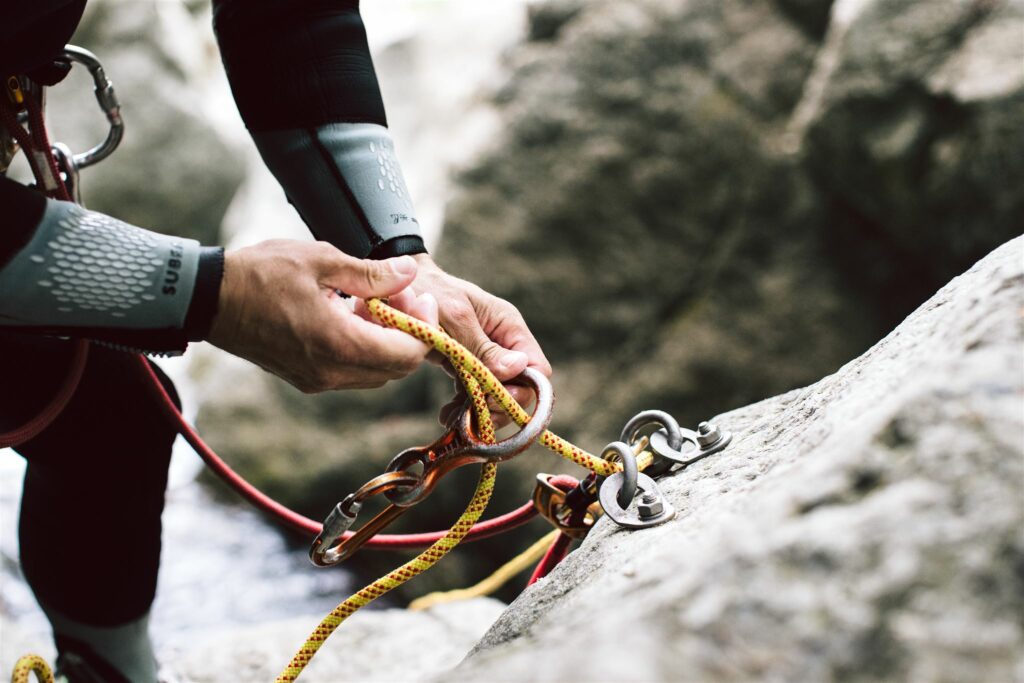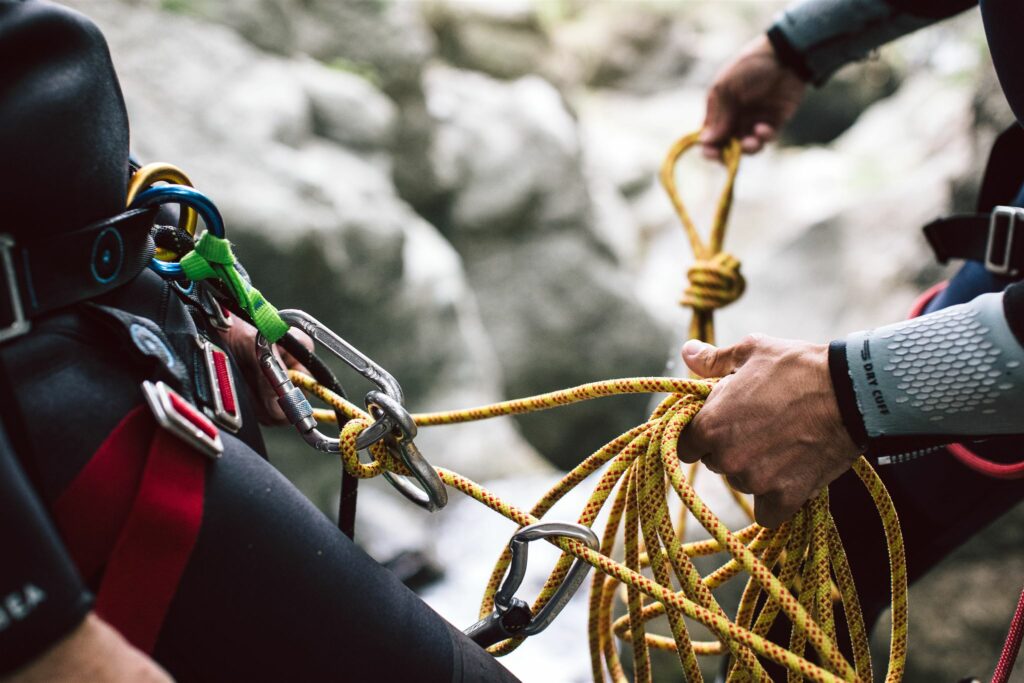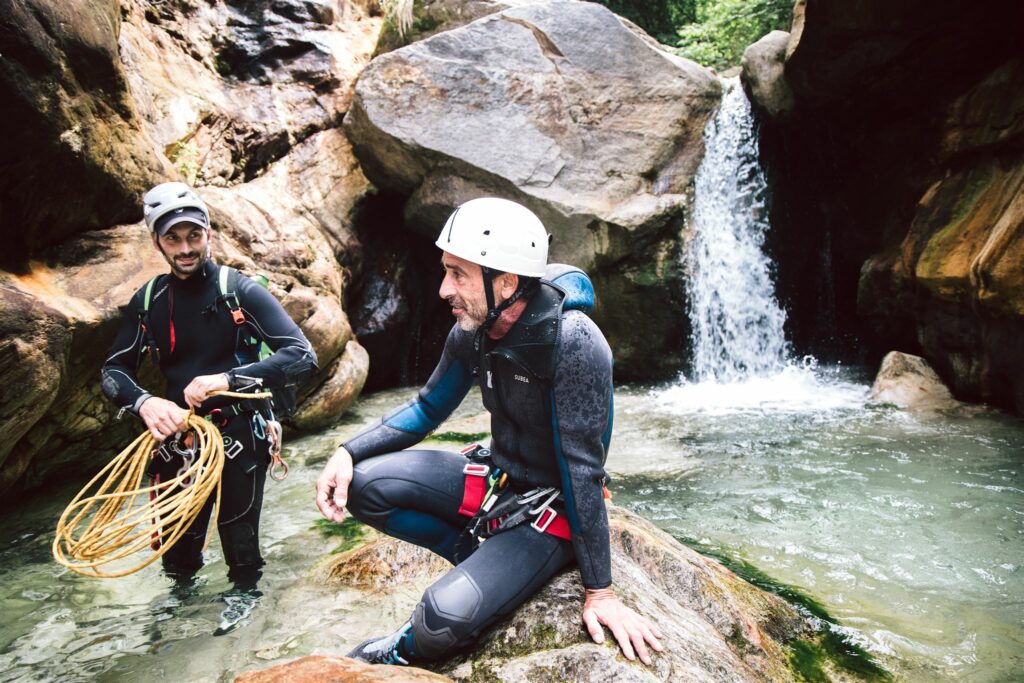Canyoning equipment, indispensable for safe enjoyment. Hello everyone, I am Marco Peli, a canyoning guide who graduated in France more than 10 years ago.
Today I would like to talk to you about a very important topic for anyone who wants to venture into the world of canyoning: equipment. Ready to dive into this adventure? So, let’s get started!
Canyoning, a journey among the elements, Water, Earth and Void
The beauty of canyoning, or canyoning, lies in the fact that it is not just a sport but a chance to confront some of the most varied natural elements. During the same outing we will be taken to walk over rough terrain, swim and dive in deep pools, and rope down high waterfalls. Total immersion in powerful and primordial natural elements such as water, earth and void. This variety and complexity is also reflected in the equipment needed.

Basic Canyoning Equipment
Let’s try to make a list, certainly not exhaustive, of the minimum personal equipment needed to undertake a canyoning descent.
- A neoprene ( 5mm minimum ) or drysuit , neoprene socks and possibly neoprene gloves;
- Mountain helmet, that is, one that meets EN12 492 and UIAA 106 standards:
- Canyoning harness with protective culotte, we will prioritize hanging comfort and freedom of movement;
- A pair of Canyoning Shoes or suitable footwear;
- A dynamic double lanyard with safety carabiners
- A descender i.e., a brake system on a rope to control the sliding of the rope under load
Let us now look in a little more detail at some aspects of the material used.

Canyoning equipment: the ropes
Ropes in creek are an element of safety and progression and are extremely stressed so their strength must be impeccable. The same types of ropes are used for Canyoning as are used for descending in caves: that is, semi-static ropes between 8 and 11 mm in diameter.
This type of rope is less elastic (and cheaper!) than the dynamic ropes we generally use for mountaineering and Free climbing. It is essential to avoid exaggerated swaying and stretching during rope maneuvers.
Since progression in the creek is done either horizontally, as on handrails, or vertically, as in rope rappels, we are not interested in the dynamic aspect of ropes.

The Canyoning Equipment: the descender
By descender we mean a braking system to control the sliding of the rope under load. There are various types of descenders, certainly the most widely used to date are: the classic figure-eight descender, Petzl’s Pirana and Kong’s Oka, and the brand new Gigio from Professione Canyon. Each of these descenders has merits and demerits; the good canyoneer will know which one to use best depending on the situation. Regardless of the descender chosen, it is essential that it be paired with a large HMS (or H) carabiner with a key-lock system, i.e., without teeth and triple safety, i.e., with three distinct movements to open it.
The Canyoning Equipment: the wetsuit
Prolonged immersion, lack of sunshine, and drafts formed in recessed gorges combined with waiting times result in significant heat loss. To avoid all risks of hypothermia, we must compensate with adequate thermal protection. From the world of scuba diving, canyoneering has borrowed the neoprene wetsuit usually between 5 and 7 mm thick, used in conjunction with socks , to protect against the cold. In the case of gorges with particularly icy water, the neoprene wetsuit can be replaced by a dry suit.
We have all the canyoning equipment
There, now you have an idea of what you need to canyoneer safely but don’t worry, we have everything you need to canyoneer together. Always checked and properly maintained!
Before we begin our experience together you will learn the correct way to use the equipment
